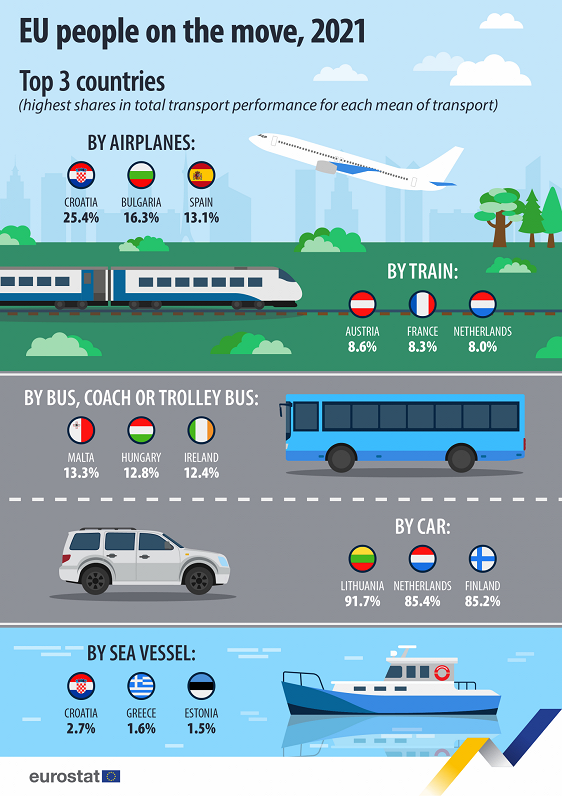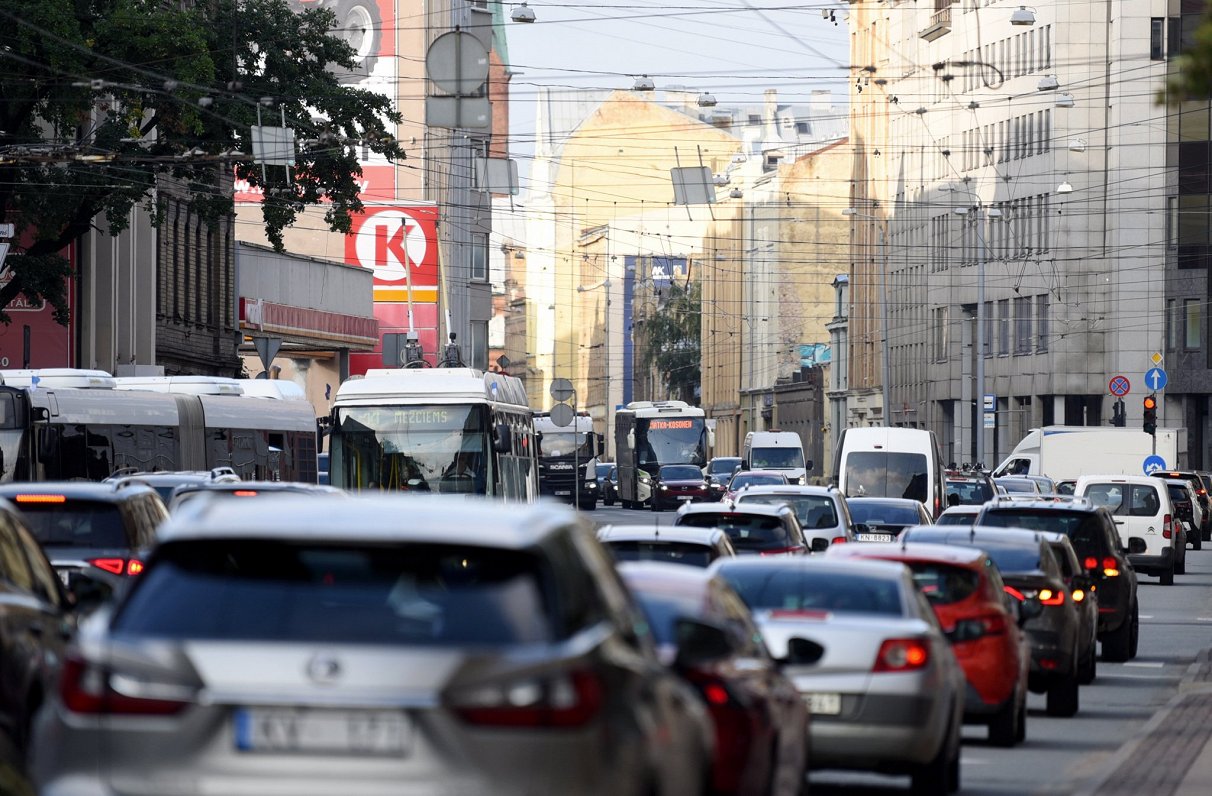In the 27 countries of the European Union as a whole, in 2021 the 'modal' split of transport types for passenger-kilometres across the EU was 5.6% trains, 79.7% cars, 7.1% coaches and buses, 0.3% seagoing vessels and 7.3% aircraft.
For Latvia the equivalent figures were 2.2% trains, 83.7% cars, 8.6% coaches and buses, 0.1% seagoing vessels and 5.3% aircraft, showing the dominance of road transport.
Estonians are just as car-oriented as Latvians, with the same 83.7% figure, but even less likely to use trains (1.9%) buses (8.2%) and planes (4.6%). All the Estonian data is estimated.
However, the Estonian islands do mean that sea transport (1.5%) is much more popular. In fact Estonia ranks third in Europe for sea transport behind Croatia (2.7%) and Greece (1.6%).
Lithuanians are the biggest car fans in the Baltic states though, and indeed in the whole of Europe, with passenger vehicles holding a massive 91.7% share, followed by the Netherlands (85.4%) and Finland (85.2%).
In terms of air transport, Croatia registered the highest share (25.4%) of air passenger-kilometres in the total performance by all transport modes, followed by Bulgaria (16.3%) and Spain (13.1%).

The car continues to be the dominant means of transport in all EU countries compared with journeys by train, bus and coach, plane or boat, though Eurostat said that "In a decade, much changed in the share of transport means used. The share of passenger-kilometres by passenger car in the total transport performance by all modes was 73.1% in 2011 and recorded small deviations around this figure until 2019. In 2020, there was an increase in the share of cars in the total transport performance to 81.9% but this does not represent an actual increase in the number of passenger-kilometres by car (in 2020, there was a decrease to 3 541 billion passenger-kilometres, from 4 278 billion passenger-kilometres in 2019), it mainly reflects the strong decrease in transport by air due to the impact of the COVID-19 restrictions on transportation."




























